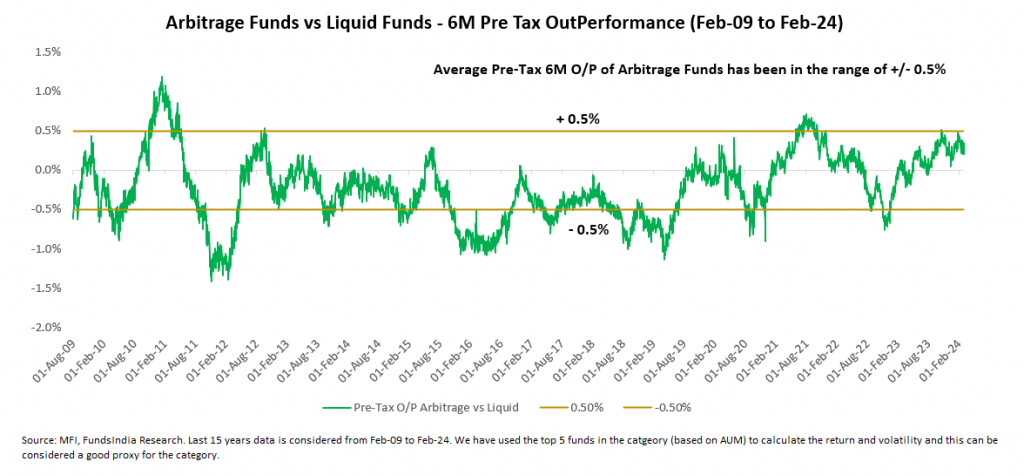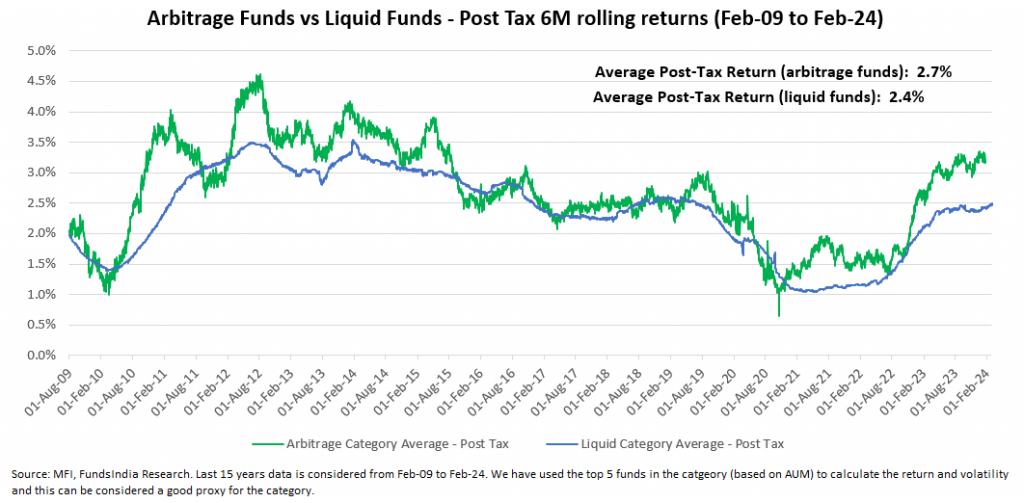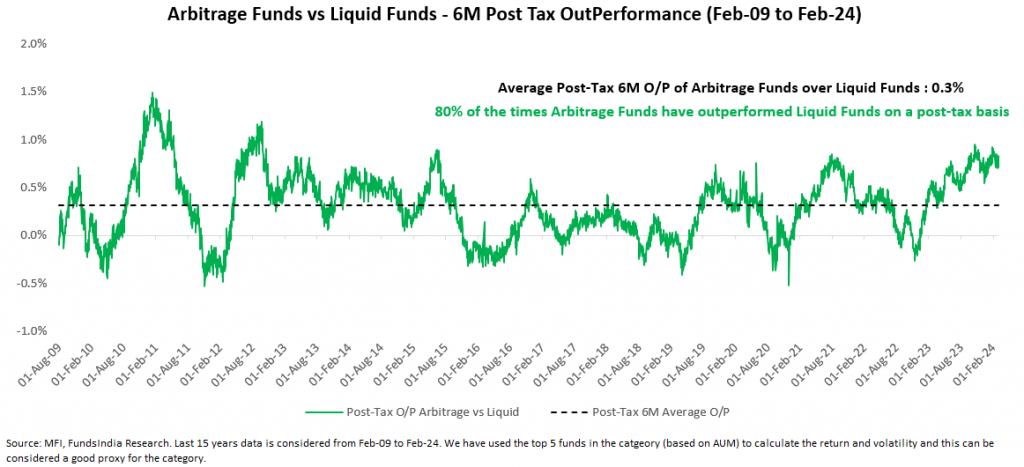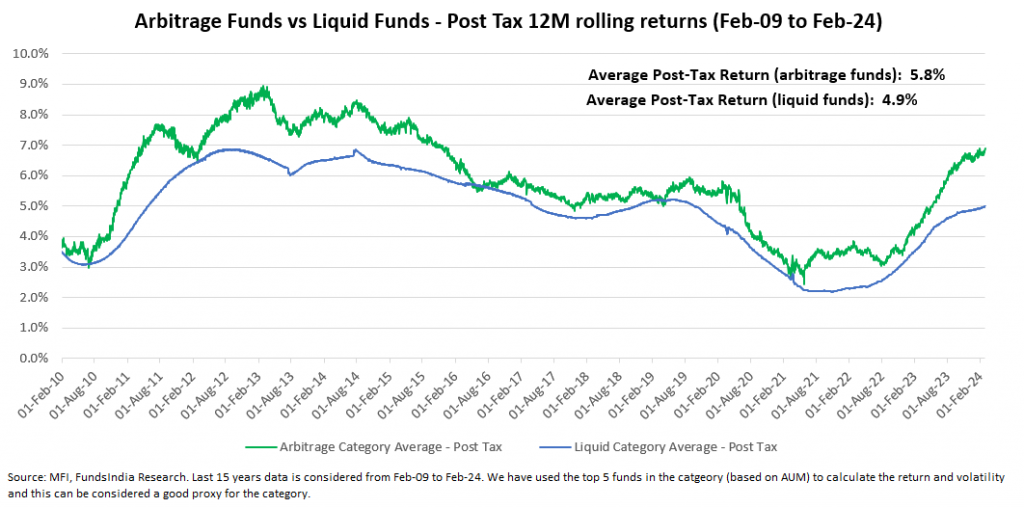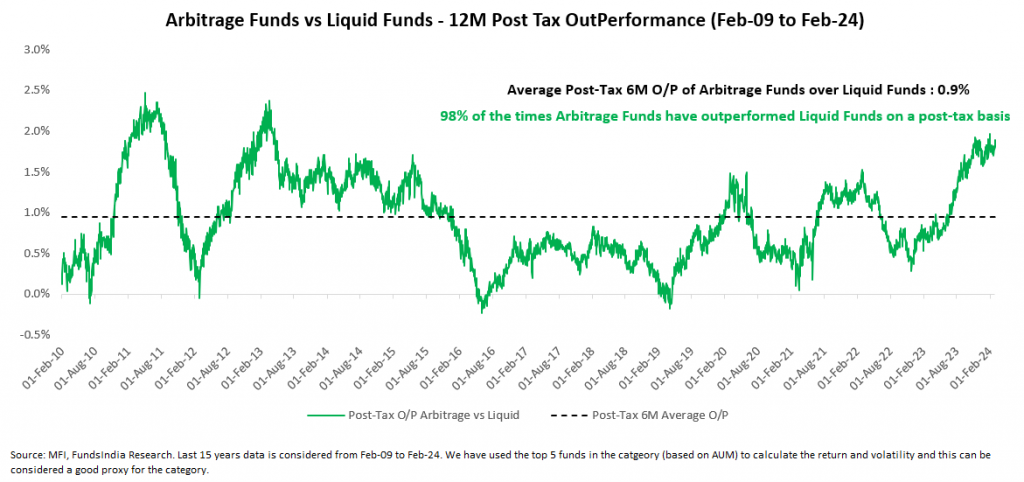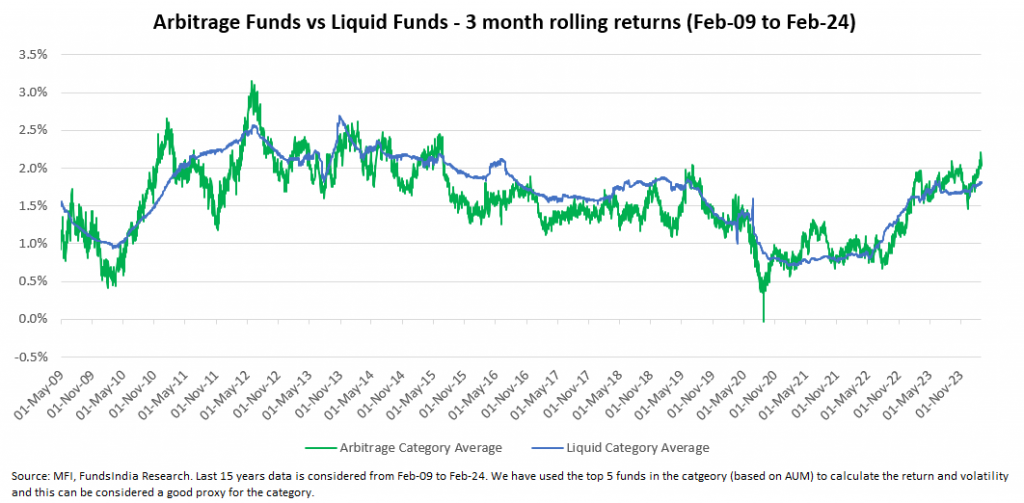What are Arbitrage Funds?
Arbitrage Funds are Debt Oriented Hybrid Funds which make investments in a mixture of Arbitrage and Debt/FDs. They often have 65-75% of their portfolio in ‘Arbitrage’ investments and the remaining 25-30% in ‘Debt/FDs’.
Over a 6 month to 1 12 months interval, arbitrage fund returns are sometimes akin to liquid fund returns. However in contrast to liquid funds that are taxed based on your tax slab, arbitrage funds take pleasure in fairness taxation because the funds preserve greater than 65% publicity to arbitrage investments.
For any fund to qualify for fairness taxation, the publicity to Indian equities should be above 65% of the portfolio. Arbitrage portion although the returns are much like a debt liquid fund is taken into account as fairness from the tax angle because it entails shopping for a inventory within the money market (that’s the inventory market) and promoting it within the futures market.
How do they work?
Arbitrage Funds work on the arbitrage precept the place they make the most of pricing distinction of a selected asset, between two or extra markets. It captures danger free revenue on the transaction.
Some of the generally used technique by arbitrage funds is the Money Future Arbitrage. Beneath this technique, arbitrage funds concurrently purchase shares within the money market and promote them within the futures at a barely larger value thereby locking the unfold (danger free revenue) at initiation. At expiry, future value converge with precise inventory value accordingly achieve is realized.
Instance:
What ought to be the return expectation from arbitrage funds?
Allow us to consider this by evaluating the typical returns (largest 5 funds) of Arbitrage Funds class vs Liquid Funds class over the past 15 years.
For six month time frames, Pre-tax returns from arbitrage funds are much like liquid funds…
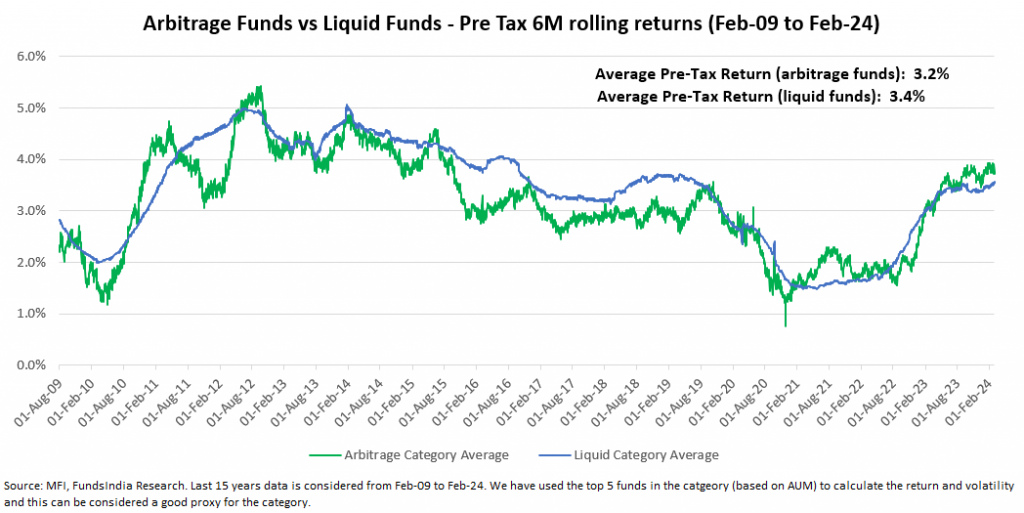
However Publish-tax returns from arbitrage funds are usually higher than liquid funds because of decrease taxation…
Arbitrage funds in contrast to liquid funds take pleasure in fairness taxation..
80% of the instances Arbitrage Funds on a post-tax foundation have outperformed Liquid Funds over 6 month time frames…
98% of the instances Arbitrage Funds on a post-tax foundation have outperformed Liquid Funds over 1 12 months frames – common outperformance of 0.9%!
Takeaway: Arbitrage funds are a tax environment friendly different and provide higher post-tax returns in comparison with liquid funds over 6M-1Y time frames
How unstable are arbitrage funds in comparison with liquid funds?
We’ve got evaluated volatility by observing the situations of each day or one-day unfavourable returns over the past 15 years.
Each day returns for arbitrage funds had been unfavourable 33% of the instances vs 0.4% of the instances for liquid funds…
This improves when you improve the time frames – Month-to-month returns for arbitrage funds had been unfavourable solely 0.6% of the instances vs 0% of the instances for liquid funds…
No situations of unfavourable returns for arbitrage funds on a 3 month foundation…
Whereas on a 3 month foundation there aren’t any situations of unfavourable returns in arbitrage funds, to be on the conservative aspect we might recommend a minimal timeframe of atleast 6 months. When you can maintain and prolong your timeframe by greater than 1 12 months then you definately additionally get the advantage of long-term capital positive factors tax.
Takeaway: Arbitrage funds within the quick run, are barely extra unstable than liquid fund – make investments with a timeframe of atleast 6 months to 1 12 months
That are the eventualities underneath which arbitrage fund returns will come underneath stress?
Arbitrage fund returns largely rely upon the spreads between the inventory and the futures market. The spreads can shrink (or worse nonetheless, flip unfavourable) underneath the next conditions:
- Bearish or Rangebound markets – In bearish or range-bound markets, arbitrage alternatives dry up and an arbitrage fund might have to remain invested in debt or maintain money. Additionally, when the market sentiment is bearish, futures might commerce at a reduction (and never a premium) to the money market implying unfavourable spreads.
- Rising AUMs of arbitrage funds – Because the AUMs of arbitrage funds develop, there may be extra money chasing arbitrage alternatives and the spreads are likely to go down.
- Falling rates of interest – theoretically, future value is spot value + risk-free charge. Therefore, a fall in rates of interest, implies decrease futures value of a inventory and therefore decrease spreads and lowered arbitrage alternative.
- Decrease borrowing and forex hedging prices for FIIs – As these prices come down, there may be elevated FII participation in Indian fairness arbitrage trades. This brings down the general arbitrage spreads available in the market.
Are Arbitrage Funds best for you?
Arbitrage funds might be thought-about if
- You might have a timeframe of >6 months
- You might be in search of higher put up tax returns than liquid funds
- You might be okay with barely larger non permanent volatility (vs liquid funds)
Summing it up
- Arbitrage Funds are debt oriented hybrid funds which make investments in a mixture of arbitrage and debt. They often have 65-75% in arbitrage with debt and FD’s accounting for the remaining 25-30%.
- Arbitrage Funds generate returns by partaking in arbitrage alternatives and making the most of the unfold or the differential within the value of a inventory within the spot market versus its value within the futures market.
- Arbitrage funds are a tax environment friendly different (take pleasure in fairness taxation) and provide higher post-tax returns in comparison with liquid funds over 6M-1Y time frames
- Make investments with a minimal timeframe of atleast 6 months as they’ve barely larger volatility in comparison with liquid funds over shorter time frames. By extending your timeframe to greater than 1 12 months you may as well benefit from the profit of long-term capital positive factors tax (No tax for positive factors lower than Rs 1 lakh and 10% tax for positive factors greater than 1 lakh)
Different articles chances are you’ll like
Publish Views:
2,491






